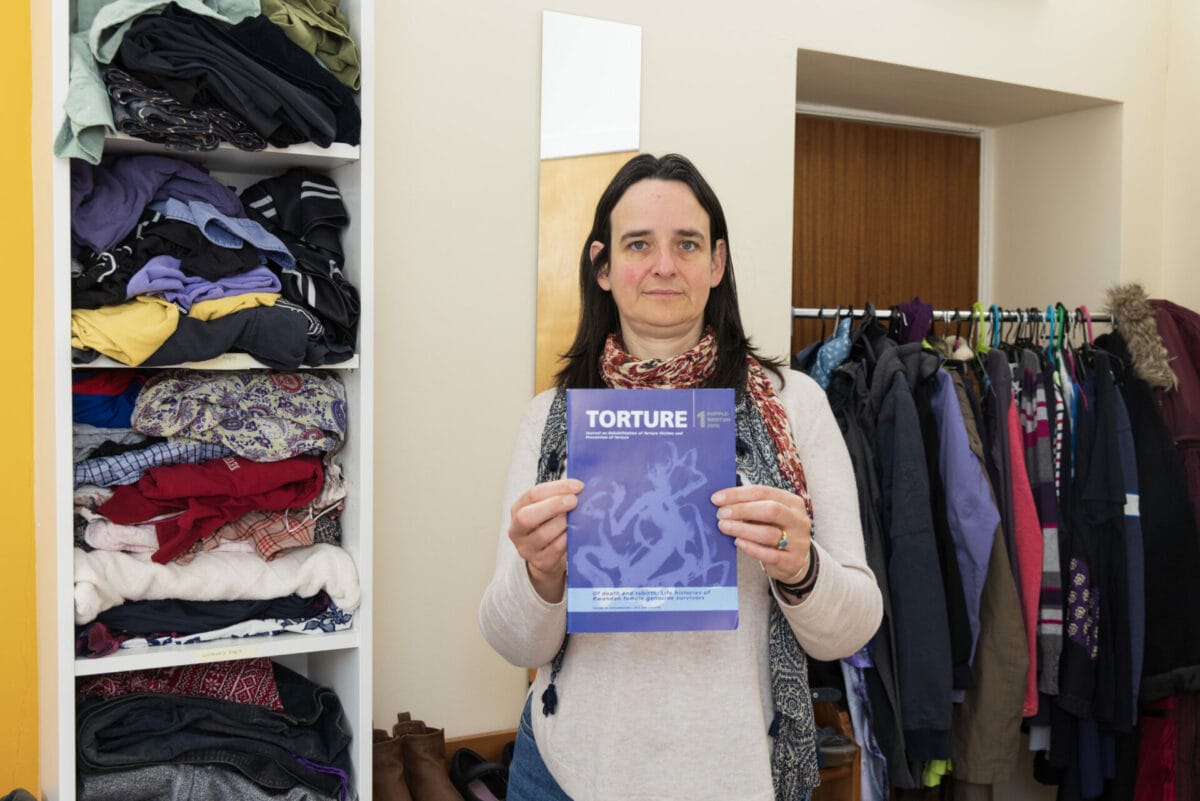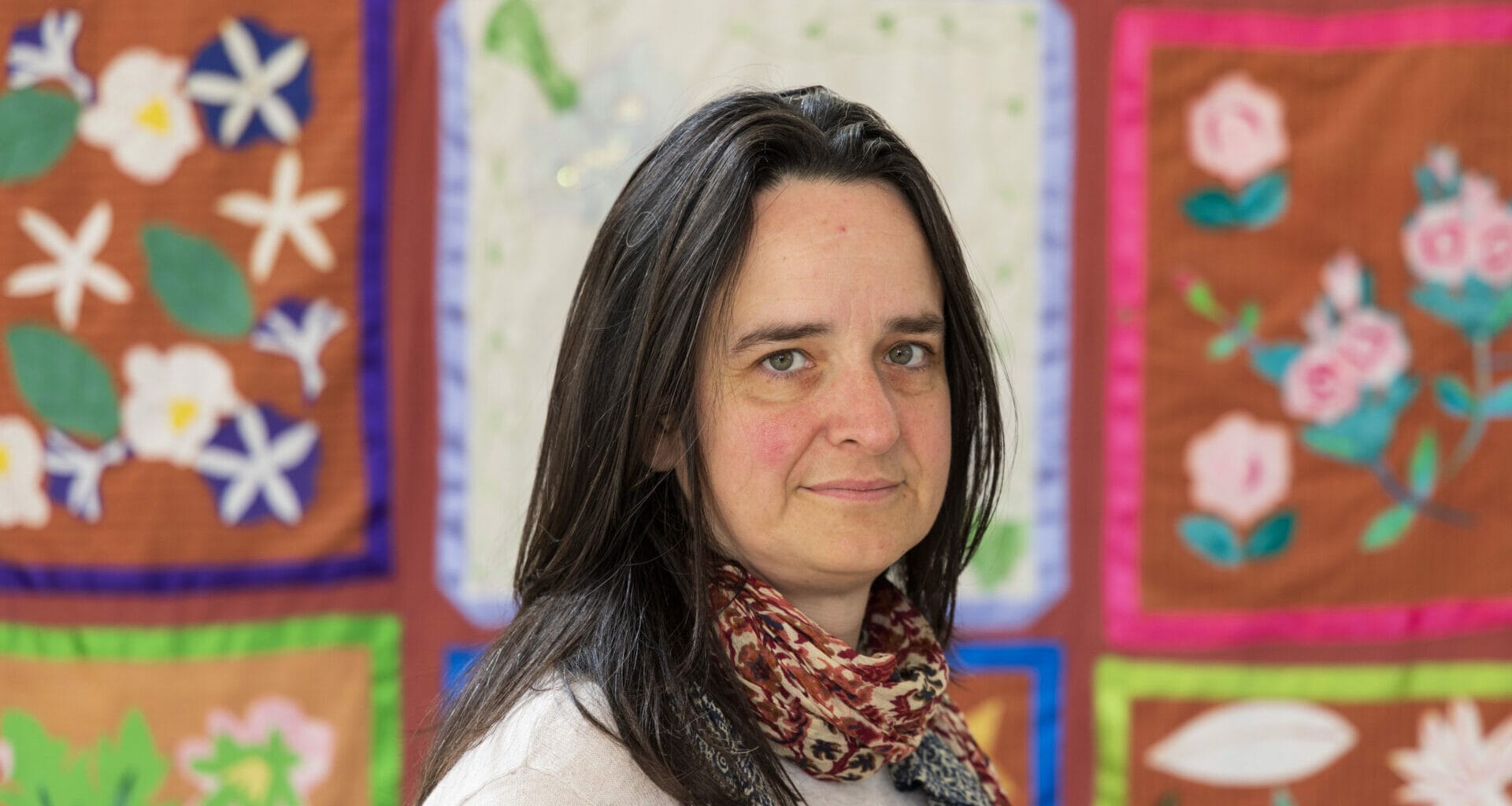The UK Government is “whipping up hatred” against asylum seekers and putting vulnerable people at “real risk” from harm, according to a psychotherapist who works with torture survivors in Glasgow.
Fiona Crombie, the out-going head of clinical services, Scotland, at Freedom from Torture (FfT), spoke exclusively to The Ferret’s How to Survive Torture podcast to explain how people who have been tortured are helped to rebuild their lives.
The UK-wide charity counsels people, including women and children, who have suffered beatings, whippings, burnings and rape – among other types of torture – before fleeing to Britain.
FfT’s Glasgow centre opened in 2004 and is currently supporting 67 people, who came to the UK from Iraq, Iran, Egypt, Ethiopia, Sri Lanka, Sudan, Syria, and Pakistan, among other countries.
Many of them suffer from post-traumatic stress disorder.
The dehumanising and inflammatory language used (by the UK Government) is putting people seeking sanctuary in this country at real risk.
Fiona Crombie, psychotherapist at Freedom from Torture
Crombie took up her role at FfT in 2018 but leaves the charity this month. In an interview with The Ferret, she condemned the language used by UK Government ministers, including home secretary, Suella Braverman, who was accused of using Nazi-like rhetoric when talking about asylum seekers.
Braverman denied the claims, made by BBC presenter Gary Lineker and an 83-year-old Holocaust survivor called Joan Salter.
Crombie told The Ferret: “Time and time again, we’re seeing the government ramping up the cruelty of their anti-refugee rhetoric to distract from their own catastrophic mismanagement of the asylum system. The dehumanising and inflammatory language used is putting people seeking sanctuary in this country at real risk, including the survivors that Freedom from Torture treat every day.”
She added: “The demonisation and scapegoating of refugees is having a very real and very negative impact. It’s an additional – and unnecessary – challenge facing vulnerable and marginalised people whose recovery processes are already complex enough. Rather than whipping up hatred and deflecting blame, we need the government to focus their efforts on rebuilding a fair and efficient asylum system.”
Crombie said some of her clients had suffered racist attacks. One person – who asked for their identity to be protected – said bottles had been thrown through the windows of their Glasgow home and their child had been robbed.
Another torture survivor said there have been several “anti-refugee” incidents in Glasgow and she was left shaken by one. They said: “I can’t get it out of my head. It really affected me. It took me a week before I could leave my house again. Even after the incident, I struggled to look at people when I was out, as I was scared of people. It triggered the trauma you are trying to deal with, and you don’t feel safe.
“I was at the point of healing and these things set me back – they made me feel low and bad.”

In response to Crombie’s comments, a Home Office spokesperson said the “unacceptable number” of people risking their lives by making dangerous English Channel crossings is “placing an unprecedented strain” on the UK’s asylum system.
They added: “Our priority is to stop the boats, and our small boats operational command is working alongside our French partners and other agencies to disrupt the people smugglers. The government is going even further through our Illegal Migration Act which will mean that people arriving in the UK illegally are detained and promptly removed to their country of origin or a safe third country.”
To help torture survivors suffering from post traumatic stress disorder, FfT use methods such as eye movement desensitisation and reprocessing (EMDR), and narrative exposure therapy.
To find out more, listen to The Ferret’s podcast – How To Survive Torture – which explains how these methods work in practice, through interviews with Crombie and a refugee who was tortured by the Iranian state.
Photography by Robert Perry. Music by Rob Baynes.














